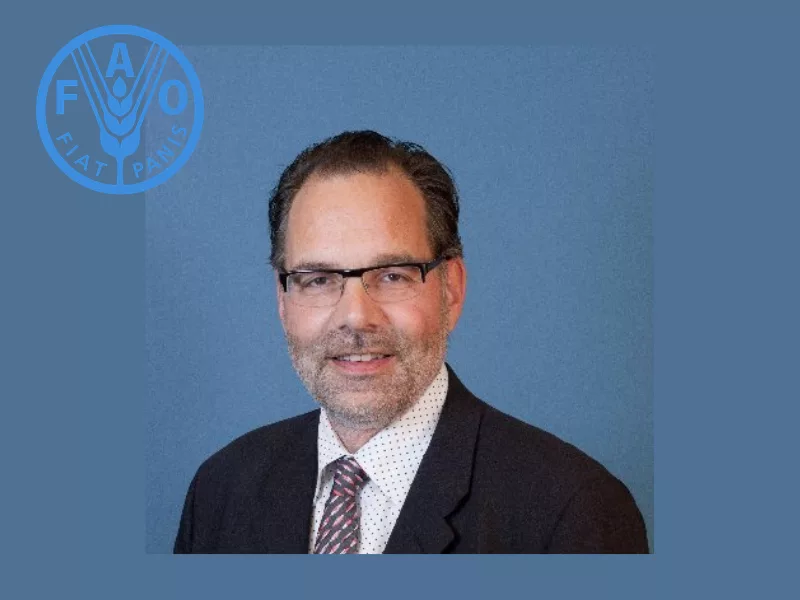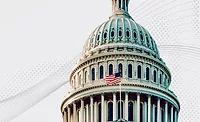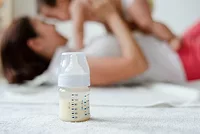GFSI Exclusive Interview: FAO Food Safety Head Talks Collaboration, Sustainability

Dr. Markus Lipp, Senior Food Safety Officer at the Food and Agriculture Organization (FAO) of the United Nations (UN), leads the food safety work in FAO's Food Systems and Food Safety Division. He also coordinates FAO's work on providing chemical and microbiological food safety risk assessment and capacity development work to strengthen national capacities for food safety.
At the 2022 GFSI conference in Barcelona, Dr. Lipp participated in a panel discussion titled "Food Safety is Everyone's Business," alongside members from The Consumer Goods Forum, the World Health Organization, the UN World Food Program, Mondelēz International, and the Codex Alimentarius Commission.
Food Safety Magazine also had the privilege of speaking with Dr. Lipp after the panel discussion on the collaborative work that FAO, GFSI, and other organizations are doing to strengthen food safety and sustainability worldwide.
Food Safety is Everyone's Business
The GFSI panel discussion focused on the core theme of how producing safe food is a multi-stakeholder effort. In discussing the collaborations between various non-government agencies and organizations, Dr. Lipp explained that there is more that unites the public and private sectors than divides them. "We need to make sure that everyone understands the premise of food safety before we can talk about other things, and before we can unite the public and private sectors," he asserted.
Looking at the value proposition of food safety, Dr. Lipp alluded to the inherent need to prevent food safety crises in private sector, although he noted that it can be more difficult to outline a specific value proposition for the public sector. The value proposition for public investments in food safety requires further discussion to make the value of food safety to society more transparent, Dr. Lipp said.
Dr. Lipp also discussed how Codex Alimentarius plays a role in FAO's strategy. "Codex is embedded in an essential way in the FAO food safety strategy," he said. "FAO and the World Health Organization [WHO] deliver the scientific background to all Codex Committees. FAO is also a user of Codex standards in our capacity development work, so we do our best to enable the work of Codex. We also have a shared interest in understanding the impact of Codex standards and how they are used."
FAO and GFSI's Collaborative Work
In Food Safety Magazine's exclusive interview with Dr. Lipp following his panel discussion at the GFSI conference, we asked about the strategies he is developing at FAO to strengthen national capacities for food safety. Dr. Lipp explained that the main driver of FAO is to help link value chains. To strengthen food safety systems, it is necessary to employ various sets of considerations. He pointed to the Food Control System Assessment Tool as the best example of this.
Looking for quick answers on food safety topics?
Try Ask FSM, our new smart AI search tool.
Ask FSM →
"It's a methodological inquiry into how well a good control system operates within a country, and the result is that it shows what needs to be strengthened based on evidence," Dr. Lipp said. "It's a four-volume document and very comprehensive."
When using this tool, it is important to examine public-private interaction, how the private sector is organized, which players are recognized in those policies, which government ministries are relevant to food safety, how the legal food systems are set up, and how the various agencies can collaborate.
"Basically, it's a comprehensive assessment of how a government system is structured and how well it works, and it includes an assessment of how well organized the private and civil sectors are, so that all stakeholders, including farmers and consumers, can have a voice," Dr. Lipp explained.
FAO also helps facilitate inter-sectorial collaboration with countries. Using analysis derived from the Food Control System Assessment Tool, a country decides which actions to engage, and then FAO and other agencies can help the country address its weaknesses and revise its food legislation.
Another example of a set of considerations for strengthening food safety systems is scientific risk assessments. These assessments call upon experts to elaborate on the food safety issue at hand—whether it be allergens, veterinary drug residues in animal products, contaminants in food, microbiological hazards, or others. These assessments help deliver actionable outcomes for public health, Dr. Lipp said.
Based on these assessments and outcomes, countries can reassess their national situations and the volumes of food that are consumed, and then consider what reasonably protective limits might look like. Dr. Lipp noted that such assessments require a high level of toxicological expertise—a service that FAO, in most cases together with WHO, has been providing to its Members since 1956.
Safer Food for Economic Development
We next asked Dr. Lipp about the capacities in which FAO and GFSI collaborate. He noted that the GFSI mission is clear—all of us are consumers of food, and we understand that food safety is critical to public health.
Importantly, food safety is also a critical step in the economic development of countries. To participate in international trade, nations must meet the requirements of the import market, which is closely associated with GFSI standards. If countries cannot meet those standards, then they cannot participate in international trade. Dr. Lipp emphasized the role of international trade in extending supply chains and offering more food choices, while at the same time promoting economic development and opportunity.
Regarding near-term collaboration goals between FAO and GFSI, Dr. Lipp underlined the need to reach a common agreement on what is meant by food safety and how to measure it—as well as assigning a value to that measurement.
"How do we quantify food safety, and how do we quantify the lack of food safety?" Dr. Lipp hypothesized. "It's a binary thought process—if food is not safe, then we have recalls and that kind of drama, but it's currently a black-and-white scenario. How can we determine a more gradual approach that isn't always black or white, but has a path for improvement? How do we develop the language of how to talk about measuring food safety as a general concept, and how to measure the results of its attributes?"
Call to Action for World Food Safety Day
At the conclusion of our interview with Dr. Lipp, he reminded us of the upcoming World Food Safety Day on June 7 and WHO's Call to Action for policymakers, food businesses, educational institutions, workplaces, and consumers.
"Everyone needs to do their part, and then we can safely sit down for breakfast, lunch, or dinner, and rest assured that we are having access to safe food in every country," Dr. Lipp said.
Markus Lipp, Ph.D., is Senior Food Safety Officer at the Food and Agriculture Organization (FAO) of the United Nations.









